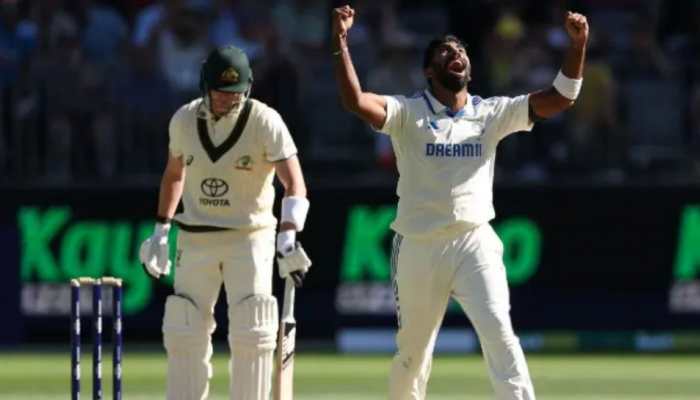NCERT Drops Reference To Gujarat Riots, Gandhi, Hindu-Muslim Unity, RSS Ban From Textbooks
NCERT Director Dinesh Saklani, however, claimed that the change was approved during the same exercise and it did not find mention in the official notification due to an "oversight".
Trending Photos
) In the class 12 political science textbook, two whole pages on the riots in the chapter titled "Politics in India Since Independence" have been deleted.
In the class 12 political science textbook, two whole pages on the riots in the chapter titled "Politics in India Since Independence" have been deleted. NEW DELHI: "Gandhiji's death had magical effect on communal situation in the country", "Gandhi's pursuit of Hindu-Muslim unity provoked Hindu extremists" and "Organisations like RSS were banned for some time" are among the portions missing from the class 12 political science textbook for the new academic session. The National Council of Educational Research and Training (NCERT), however, claims that no curriculum trimming has taken place this year and the syllabus was rationalised in June, last year.
As part of its "syllabus rationalisation" exercise last year, the NCERT, citing "overlapping" and "irrelevant" as reasons, dropped certain portions from the course including lessons on Gujarat riots, Mughal courts, Emergency, Cold War, Naxalite movement, among others from its textbooks. A text reading, "Communal Politics began to lose its appeal" in reference to the time after Gandhi's death in 1948 was also removed from the textbook. The rationalisation note had no mention of excerpts about Mahatma Gandhi.
"The entire rationalisation exercise was done last year, there is nothing new which has happened this year," NCERT Director Dinesh Saklani said. He, however, did not comment on the missing excerpts which went unannounced at the time of rationalisation. A note by NCERT on its website reads, "in view of the COVID-19 pandemic, it was felt imperative to reduce content load on students. The National Education Policy (NEP) 2020 also emphasises reducing the content load and providing opportunities for experiential learning with creative mindset. In this background, the NCERT had undertaken the exercise to rationalise the textbooks across all classes and all subjects".
"The present edition is a reformatted version after carrying out the changes. The present textbooks are rationalised textbooks. These were rationalised for the session 2022-23 and will continue in 2023-24," it adds. Among the reasons cited behind the choice of dropped subjects during rationalisation are content based on genres of literature in the textbooks and supplementary readers at different stages of school education; for reducing the curriculum load and exam stress in view of the prevailing condition of the pandemic; content.
Subjects easily accessible to students without much interventions from teachers and can be learned by children through self-learning or peer learning and content which is "irrelevant" in the present context were also dropped from the curriculum. An official from the education ministry, who did not wish to be identified, said the new curriculum framework as per the NEP is still being worked out and the new textbooks as per the updated curriculum will only be introduced from the 2024 academic session.
A portion referring to Gujarat riots has been dropped from class 11 Sociology textbook by NCERT, months after it removed the reference to the 2002 communal violence in two class 12 textbooks. The purged paragraph from the class 11 textbook was not announced in the curriculum rationalisation booklet notified by the National Council of Educational Research and Training (NCERT) last year.
NCERT Director Dinesh Saklani, however, claimed that the change was approved during the same exercise and it did not find mention in the official notification due to an "oversight". In the class 11 Sociology textbook titled "Understanding Society", the deleted paragraph talked about how class, religion and ethnicities often lead to segregation of residential areas and it then cites the communal violence in Gujarat in 2002 to illustrate how communal violence furthers ghettoisation.
"Where and how people will live in cities is a question that is also filtered through socio-cultural identities. Residential areas in cities all over the world are almost always segregated by class, and often also by race, ethnicity, religion and other such variables. Tensions between such identities both cause these segregation patterns and are also a consequence," the purged paragraph read.
"For example, in India, communal tensions between religious communities, most commonly Hindus and Muslims, results in the conversion of mixed neighbourhoods into single-community ones. This in turn gives a specific spatial pattern to communal violence whenever it erupts, which again furthers the 'ghettoisation' process. This has happened in many cities in India, most recently in Gujarat following the riots of 2002," it added.
As part of its "syllabus rationalisation" exercise last year, the NCERT, citing "overlapping" and "irrelevant" as reasons, dropped certain portions from the course including lessons on Gujarat riots, Mughal courts, Emergency, Cold War, Naxalite movement, among others from its textbooks.
The council had then announced dropping the Gujarat riots reference in class 12 Political Science and Sociology textbook. In the class 12 political science textbook, two whole pages on the riots in the chapter titled "Politics in India Since Independence" have been deleted. The first page carried the chronology of events and refered to the National Human Rights Commission's criticism of the Gujarat government for failing to control the violence.
"Instances, like in Gujarat, alert us to the dangers involved in using religious sentiments for political purposes. This poses a threat to democratic politics," the deleted portion read.
The second page carried a collage of three newspaper reports on the riots along with an excerpt of NHRC's observation from its Annual Report of 2001-2002 on the Gujarat government's handling of the riots. Former prime minister Atal Bihari Vajpayee's famous "Raj dharma" remark in this section was also removed.
In the class 12 sociology textbook, NCERT had dropped a paragraph under the section titled "Communalism, Secularism and the Nation-State" which described how communalism "drives people to kill, rape, and loot members of other communities in order to redeem their pride, to protect their home turf".
Stay informed on all the latest news, real-time breaking news updates, and follow all the important headlines in india news and world News on Zee News.
Live Tv







)
)
)
)
)
)
)
)
)
)
